Filter by
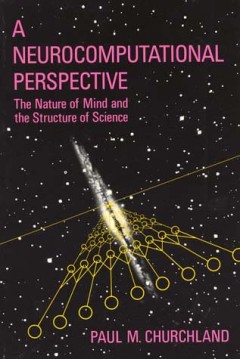
A neurocomputational perspective :the nature of mind and the structure of sci…
If we are to solve the central problems in the philosophy of science, Paul Churchland argues, we must draw heavily on the resources of the emerging sciences of the mind-brain. A Neurocomputationial Perspective illustrates the fertility of the concepts and data drawn from the study of the brain and of artificial networks that model the brain. These concepts bring unexpected coherence to scattere…
- Edition
- -
- ISBN/ISSN
- 9780262270328
- Collation
- 1 online resource (xvii, 321 pages) :illustrations
- Series Title
- -
- Call Number
- -
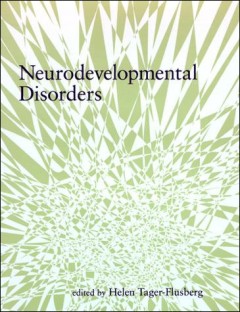
Neurodevelopmental disorders
"Until recently, genetic, neuroanatomical, and psychological investigations on neurodevelopmental disorders were carried out independently. Now, tremendous advances across all disciplines have brought us toward a new scientific frontier: the integration of molecular genetics with a developmental cognitive neuroscience. The goal is to understand the basic mechanisms by which genes and environmen…
- Edition
- -
- ISBN/ISSN
- 9780262284653
- Collation
- 1 online resource (xii, 614 pages) :illustrations.
- Series Title
- -
- Call Number
- -
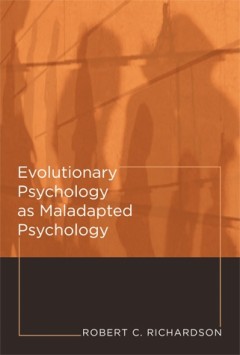
Evolutionary psychology as maladapted psychology / Psychology as Maladapted …
A philosopher subjects the claims of evolutionary psychology to the evidential and methodological requirements of evolutionary biology, concluding that evolutionary psychology's explanations amount to speculation disguised as results. Human beings, like other organisms, are the products of evolution. Like other organisms, we exhibit traits that are the product of natural selection. Our psycholo…
- Edition
- -
- ISBN/ISSN
- -
- Collation
- 1 online resource (xi, 213 pages) : illustrations.
- Series Title
- -
- Call Number
- -
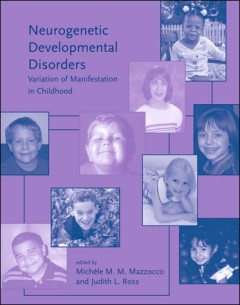
Neurogenetic developmental disorders :variation of manifestation in childhood
A reference to guide clinicians, researchers, teachers, and parents in identifying a range of genetic disorders despite widely variable cognitive, behavioral, and physical effects.OCLC-licensed vendor bibliographic record.
- Edition
- -
- ISBN/ISSN
- 9780262279321
- Collation
- 1 online resource (xiv, 507 pages) :illustrations.
- Series Title
- -
- Call Number
- -
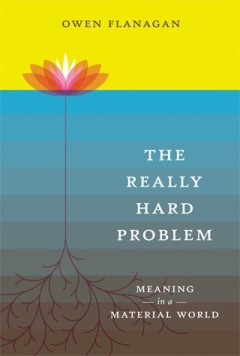
The really hard problem Meaning in a Material World
A noted philosopher proposes a naturalistic (rather than supernaturalistic) way to solve the "really hard problem": how to live a life that really matters-even as a finite material being living in a material world.
- Edition
- -
- ISBN/ISSN
- -
- Collation
- 1 online resource (xiii, 288 pages) : illustrations
- Series Title
- -
- Call Number
- -
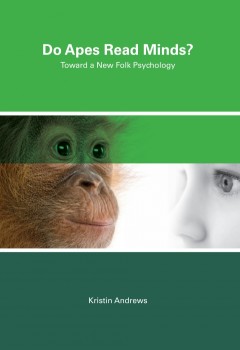
Do apes read minds? :toward a new folk psychology
An argument that as folk psychologists humans (and perhaps other animals) don't so much read minds as see one another as persons with traits, emotions, and social relations. By adulthood, most of us have become experts in human behavior, able to make sense of the myriad behaviors we find in environments ranging from the family home to the local mall and beyond. In philosophy of mind, our unders…
- Edition
- -
- ISBN/ISSN
- 9780262305761
- Collation
- 1 online resource (xi, 294 pages)
- Series Title
- -
- Call Number
- -

Timing of Behavior: Neural, Psychological, and Computational Perspectives
A Bradford book."OCLC-licensed vendor bibliographic record.
- Edition
- -
- ISBN/ISSN
- 9780262282567
- Collation
- 1 online resource (xii, 384 pages) :illustrations
- Series Title
- -
- Call Number
- -
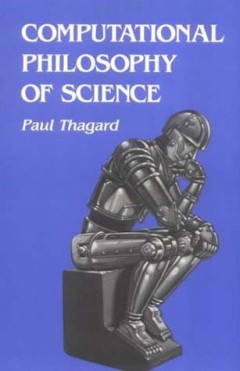
Computational Philosophy of Science
"A Bradford book."By applying research in artificial intelligence to problems in the philosophy of science, Paul Thagard develops an exciting new approach to the study of scientific reasoning. This approach uses computational ideas to shed light on how scientific theories are discovered, evaluated, and used in explanations. Thagard describes a detailed computational model of problem solving and…
- Edition
- -
- ISBN/ISSN
- 9780262284837
- Collation
- 1 online resource (xiv, 240 pages) :illustrations
- Series Title
- -
- Call Number
- -
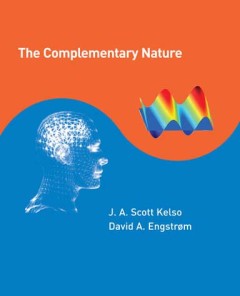
The Complementary Nature
"A Bradford book."Why do we divide our world into contraries? Why do we perceive and interpret so many of life's contraries as mutually exclusive, either/or dichotomies such as individual~collective, self~other, body~mind, nature~nurture, cooperation~competition? Throughout history, many have recognized that truth may well lie in between such polar opposites. In The Complementary Nature, Scott …
- Edition
- -
- ISBN/ISSN
- 9780262316286
- Collation
- 1 online resource (xviii, 317 pages) :illustrations
- Series Title
- -
- Call Number
- -
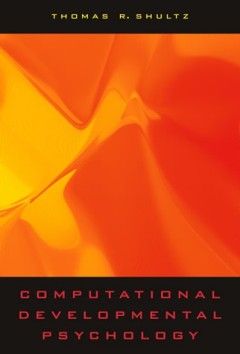
Computational Developmental Psychology
"A Bradford book."An overview of the emerging discipline of computational developmental psychology, emphasizing the use of constructivist neural networks.Despite decades of scientific research, the core issues of child development remain too complex to be explained by traditional verbal theories. These issues include structure and transition, representation and processing, innate and experienti…
- Edition
- -
- ISBN/ISSN
- 9780262303033
- Collation
- 1 online resource (338 pages)
- Series Title
- -
- Call Number
- -
 Computer Science, Information & General Works
Computer Science, Information & General Works  Philosophy & Psychology
Philosophy & Psychology  Religion
Religion  Social Sciences
Social Sciences  Language
Language  Pure Science
Pure Science  Applied Sciences
Applied Sciences  Art & Recreation
Art & Recreation  Literature
Literature  History & Geography
History & Geography